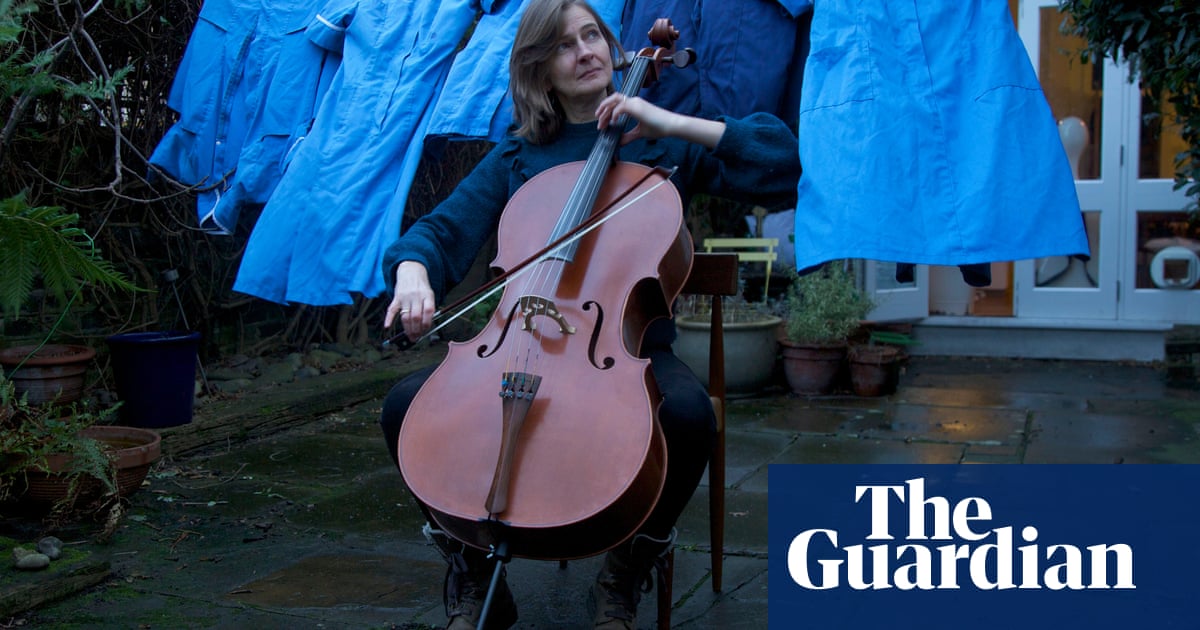
n Essex town is experiencing an explosion in popularity of cold water swimming. One Facebook page for people wanting to swim in Leigh-on-Sea, which launched in mid-October, reached almost 650 members within two months as numbers rocketed through lockdown 2. Swimmers say working from home has given people more time to enjoy simple pleasures and the sea allows a moment to step away from normal life in uncertain times.
Jenny Bier, 45, a project manager, is cofounder of the Leigh-on-Sea branch of the Bluetits – an informal swimming movement started in Pembrokeshire in 2014, with more than 6,000 members worldwide. She first tried cold water swimming in September this year, stepping over the shingly sands and into the Thames Estuary. “I went in up to my thighs and I thought, ‘That is absolutely awful.’ It really, really hurt,” she said. “I got out again. And then I gave myself a talking to and I went back in and it was just glorious.
“A boat had just come in with a load of cockles or fish or something and the bloke said to me, ‘You must be absolutely mental.’ It was raining at the time. He said: ‘What are you doing, are you alright?’ I was like, ‘This is the best thing ever!’ I was so happy I’d done it, but it wasn’t an easy first one. I’ve tried to go in maybe three or four times a week ever since whenever I can.”
Her friend Lisa Monger, 44, also of Leigh-on-Sea, had been trying cold water swimming too and had heard of the Bluetits as there is a branch in Falmouth in Cornwall, where her daughter went to university. Monger, a fitness coach, decided to start a branch of the Bluetits (so named because “it’s quite funny and it’s cold”) with Bier.
While the group offers general advice and a way of connecting members, there are no fees, no formal training, and people choose to swim when they like. Now scores of swimmers and dippers – some in bikinis or swimming shorts, others in wetsuits with hats, boots and gloves – can be seen in the tidal waters of the Essex riviera. They range in age from children to a woman in her 70s, and include tax advisers, accountants, paramedics, police and people who work in theatre, Monger said.
Monger said: “This year has stripped back all the stuff that’s not important and has made people appreciate the simple things. That’s what has drawn people to it, I think.
“You might be feeling completely stressed and overwhelmed and it’s something that soothes you and washes away stress and really forces you to forget everything else because you’re so focused in the moment, of feeling everything as you walk into the water. Feeling how cold it is. Other times I’ll go there wanting the camaraderie and laughs and banter with other people who are on the beach.”
She added that working from home had given London commuters “maybe three hours back a day” and helped free up partners with childcare responsibilities.
She said she has seen as many as 50 people in the water at 7am. “The ones that surprise me are when it’s 11am, and ordinarily people would be at work, and actually people are saying, ‘You know what – I’m going to take my lunch break when the tide’s there.’”
The group is for men and women (the men are called Bluebells) and it has become a community. Bier said she can go to the seafront on her own without making plans and there are usually between five and 15 other swimmers there. “It’s been a lovely way to connect with people in a very strange time,” she said, and it has become so popular that “you can’t buy any wetsuits or gloves or anything for love nor money at the moment”. Being in the water is “sort of stepping away from normal life”, she said.
“Once I get in the water, everything that exists outside the water is completely irrelevant for that 10 or 15 minutes, and that’s a lovely feeling,” said Monger. “It’s just glorious. People just literally throw their clothes off. They’re so focused on wanting to get into the water, they’re practically running down through the beach.”
Leanne Mariage, 46, a fellow cold water swimmer, has been taking advice from another group – Southend Seals – since completing a two-hour water safety course. Mariage, who works as a tutor, went swimming every day in lockdown 2. “There wasn’t really anything else to do,” she said. “It was just to have a routine and a purpose.
“You have to really focus getting into really cold water. Your brain goes somewhere else, you feel somewhere different, in the sea you feel a bit disconnected from the world and connected to nature. It’s so cold it’s invigorating. It makes you feel really alive.”
“People walk along and take pictures or point at you and think you’re mad,” said Mariage. “But it’s not difficult and it’s good fun.”












